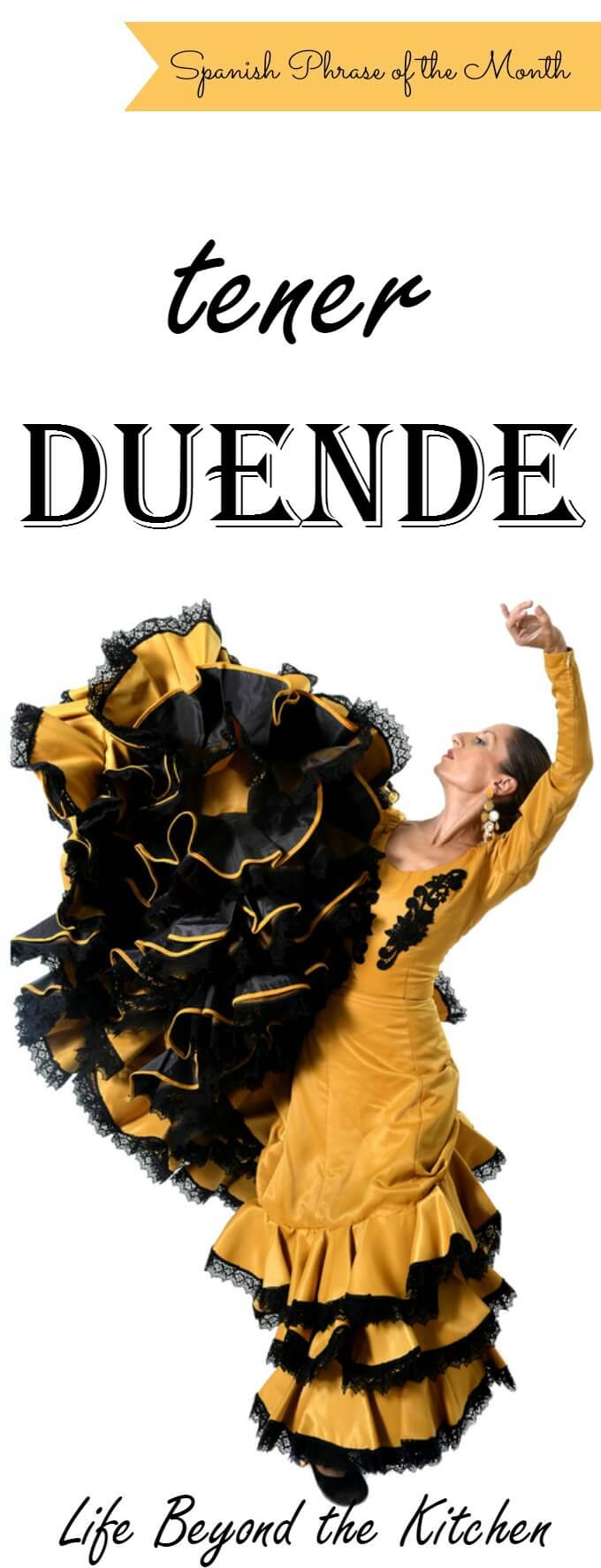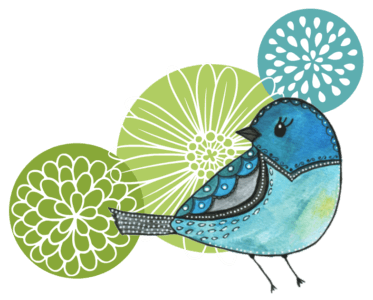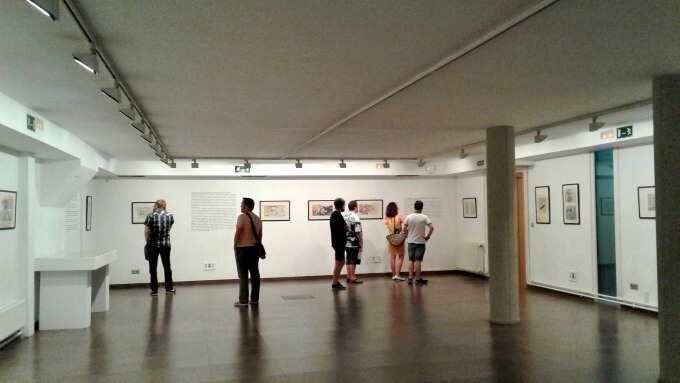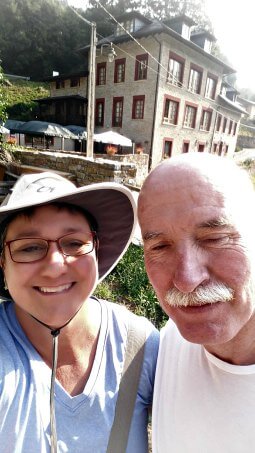Spanish Phrase of the Month – Tener Duende
Last Updated on August 2, 2017 by lydiaf1963
Have you ever listened to a song and felt chills?
Been moved to tears by an incredible actor?
Shouted in appreciation at a particularly impressive dance performance?

You may have experienced duende, a term used in flamenco which refers to the ability of an artist to not only feel strong emotion but to elicit a similar response in their audience. In the US we’d call it “soul” and I wouldn’t be surprised to learn other cultures have a similar term as well. Tener duende then would mean to have soul.
We’re not necessarily talking about a virtuoso performance but rather a genuine one. In flamenco the phenomenon is tied up with the gitano understanding of life, death, joy and suffering.

Attempts at trying to understand duende outside of flamenco may fall flat but it seems easiest to understand in a physical performance like dance or music or acting. But how can you explain the reaction to a work of art like Picasso’s Guernica? Was Picasso able to transmit his horror and sorrow via his brush strokes?
What can be said about the ability of a great storyteller to pull you into the world they’ve created and make you laugh and cry along with the hero of the tale? (You know you cried when Dobby died.)
Or the thrill of beautiful images and a stirring soundtrack? What does the composer experience? The conductor? The orchestra?
It’s unclear to me if what we understand as being “in the zone” is a similar phenomenon. The strong emotion on the part of the athlete seems to be absent, although we the fans can appreciate a great athletic performance and feel sympathy or triumph depending on the outcome. That being said, I came across this study which measured physical changes in flamenco performers who also achieve an altered state of consciousness similar to being in the zone.
Tener duende is one of those terms that is best understood within its cultural context yet seems to be universally grasped– although no easier to explain, I think because the experience is part of being human. I’ll leave you with this video to enjoy. If you’re moved to shout “¡Olé!” feel free!
What do you think? Can you relate to the concept of tener duende? Does it mean something different to you? Is it something you’ve experienced either as a performer or member of the audience?
See these articles on the web for more information:
Duende (Wikipedia)
Making Sense of Sports (Google Books)
The Spirit of Flamenco (Google Books)






I can definitely relate to tener duende! Thanks for sharing the Spanish term for this amazing human phenomenon. I love being able to use words and phrases from other languages!
Thanks, Dawn! I enjoyed writing the post.
Yes, I can relate to tener duende. It is probably the feeling I get when The Star Spangled Banner is sung it always brings tears to my eyes,
I think that’s a good example, especially when it’s performed well. I remember singing in a choral group once and everyone from the singers to the pianist to the conductor was getting into the music. There was a strange, beautiful energy in the air and when the piece was finished the conductor thanked us and wiped tears from his eyes.
I am Hispanic and have never heard of the phrase. Thanks for educating me.
I took an informal poll of my Spanish friends (they’re all Castilian) and only one used the same definition. He’s a flamenco fan. [Duende also exists in bullfighting, but I’m not going there.] There’s also a “duende” that’s some sort of magical creature (like a house elf, hahaha)…most people knew that.
As an audience member, I can tell when someone is in the zone. This want a phrase I was familiar with, but I love having the words to express what I’m seeing.
It’s nice, isn’t it? I enjoy reading those lists of not-quite-translatable words from other languages. You can learn a lot about the culture.